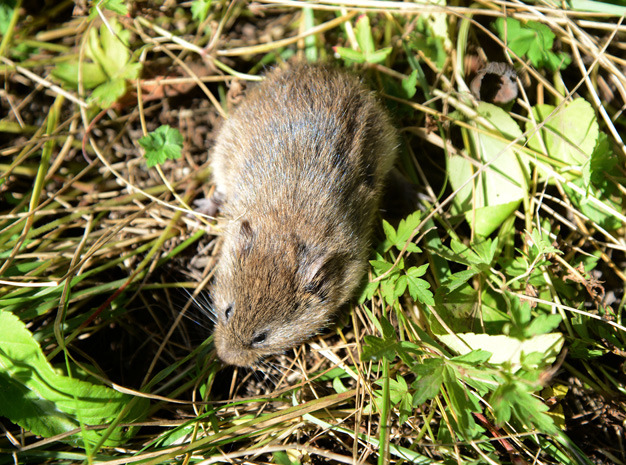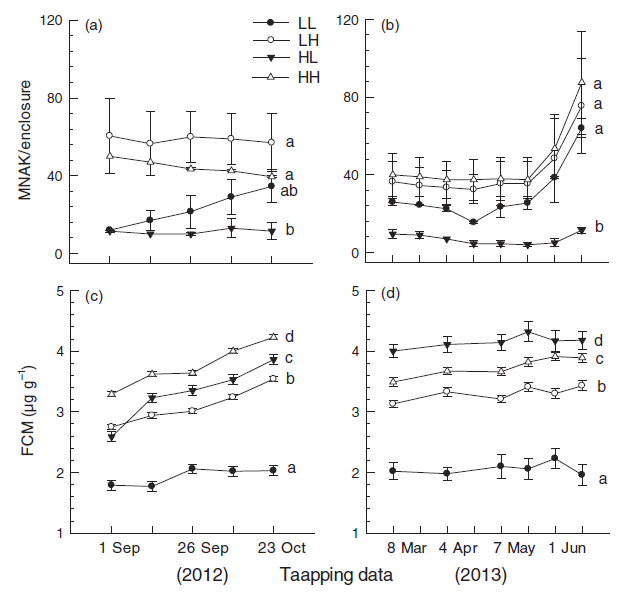Factors affecting population dynamics has not been studied very well. Maternal effects act as an adaptive bridge in translating maternal environments into offspring phenotypes, so they may play an important role in regulating population dynamics.
BIAN Jianghui of Northwest Institude of Plateau Biology, Chinese Academy of Sciences (NWIPB) and his team studied the effects of maternal population density on offspring stress axis, reproduction and population dynamics in root voles (Microtus oeconomus).
By measuring differential fluctuations in population size between maternally density-stressed and density-unstressed offspring, the researchers found that intrinsic state alterations induced by maternal stress impair offspring capacity in response to immediate environment, and these alterations are likely mediated by maternal stress system.
The research results indicated that intrinsic population density as one of ecological factors generating delayed density-dependent effects.
The work has been published in Journal of Animal Ecology.

root voles Microtus oeconomus

Fig. Fluctuations of offspring densities (a, b) and FCM levels (c, d) across trapping sessions during 2012 and 2013 seasons in maternally stressed, low (HL) and high (HH) and maternally unstressed, low (LL) and high (LH) density offspring enclosures.
